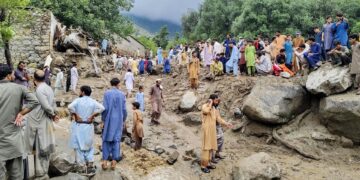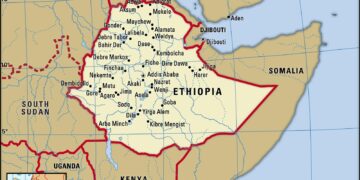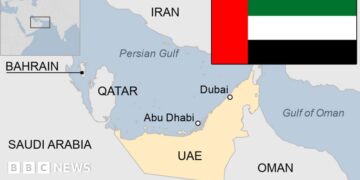France’s Denial of Algeria’s Extradition Request: A Turning Point in Bilateral Relations
In a notable development highlighting the intricate nature of Franco-Algerian ties, France has officially refused Algeria’s demand to extradite a leading Kabyle opposition leader. This move has reignited debates surrounding political freedoms and human rights issues within Algeria and the broader Maghreb region. As Algeria wrestles with ethnic identity challenges and dissent against its government, France’s refusal signals a nuanced position on asylum policies that could reshape diplomatic interactions between the two countries.
Diplomatic Fallout: How France’s Decision Reshapes Franco-Algerian Relations
The French government’s recent rejection of Algeria’s extradition request for this prominent Kabyle activist underscores its dedication to safeguarding political refugees, reflecting complex legal and moral considerations. The individual at the center of this controversy has found sanctuary in France amid allegations from Algerian authorities accusing him of subversive activities. This case symbolizes wider struggles for democratic expression within Algeria, drawing support from international human rights organizations.
This stance by Paris may be interpreted as positioning itself as a protector of dissidents opposing authoritarian regimes, yet it risks intensifying diplomatic friction with Algiers. Analysts suggest several potential consequences:
- Heightened Diplomatic Strain: The decision could deepen existing tensions rooted in colonial history and unresolved grievances.
- Escalation of Political Rhetoric: Algerian officials might amplify accusations against France for meddling in internal affairs.
- Regional Geopolitical Shifts: Neighboring countries may recalibrate alliances based on their stance toward this dispute.
The evolving situation raises questions about how economic partnerships, security cooperation, and Mediterranean regional interests will fare amid these diplomatic challenges.
The Kabyle Movement: Its Growing Influence on Algerian Politics
The refusal to extradite this key figure shines a spotlight on the Kabyle community—a Berber ethnic group inhabiting northern mountainous regions—whose quest for cultural recognition and autonomy remains contentious within Algerian politics. Historically marginalized by central authorities, Kabyle activists have increasingly gained international visibility through advocacy networks across Europe and North America.
This development is likely to have significant repercussions inside Algeria:
- Energized Grassroots Mobilization: The decision may embolden Kabyle activists to intensify calls for self-determination or expanded cultural rights.
- Tightened Government Control: In response, state security forces might escalate crackdowns aimed at suppressing dissenting voices.
- Sustained International Scrutiny: Global watchdogs such as Amnesty International or Human Rights Watch are expected to increase monitoring efforts concerning civil liberties violations in the region.
- Dynamics Within Political Factions: Internal realignments could occur as parties reconsider their positions regarding ethnic minority demands amidst growing unrest.
A parallel can be drawn with recent developments involving Kurdish movements across neighboring countries where diaspora activism influences domestic politics significantly—highlighting how transnational advocacy shapes local governance debates today more than ever before.
Navigating Future Challenges: Strategies for Rebuilding Trust Between France and Algeria
Tackling these mounting tensions requires deliberate efforts centered around dialogue, mutual respect, and pragmatic cooperation. Key approaches include:
- Bilateral Communication Channels: Instituting regular high-level talks focused explicitly on sensitive topics like human rights concerns can foster transparency;
- Cultural Diplomacy Initiatives: Expanding exchange programs involving students, artists, and intellectuals helps bridge societal divides;
- Economic Partnership Enhancement: Joint ventures especially in renewable energy sectors or infrastructure projects create shared stakes promoting stability;
- Mediation Through Neutral Entities: Engaging impartial third-party facilitators can ease deadlocks during contentious negotiations;
An essential component lies also in shaping public opinion positively through inclusive participation mechanisms such as community forums or collaborative media campaigns emphasizing common heritage rather than division.
| Engagement Strategy | Purpose & Impact |
|---|---|
| Cultural Exchange Programs | Foster empathy by sharing traditions fostering mutual understanding among younger generations; |
| Civil Society Dialogues | Provide platforms where citizens express concerns directly influencing policy discussions; |
| Award-Winning Collaborative Research | Support academic work addressing historical narratives aiming at reconciliation pathways; |
| Bilateral Media Campaigns | Highlight success stories showcasing cooperation benefits counteracting negative stereotypes; |















